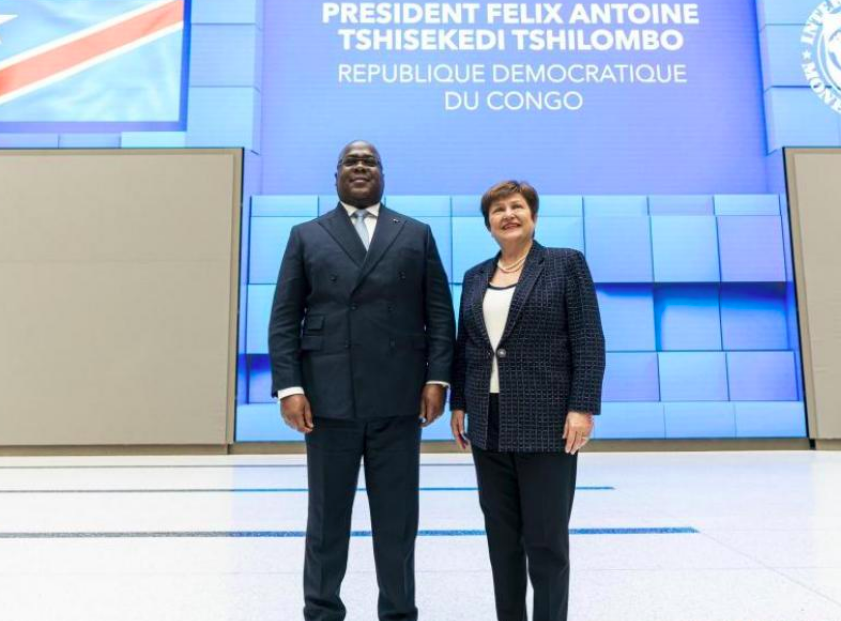The DRC authorities and the International Monetary Fund (IMF) announced on Wednesday that they have reached a technical-level agreement on a new economic and financial program supported by the Extended Credit Facility (ECF) as well as a new climate-focused arrangement supported by the Resilience and Sustainability Fund (RSF).
The ECF-supported program aims to promote strong and inclusive growth, accelerate economic diversification, stimulate job creation, improve living conditions, advance governance and transparency, and reduce poverty, through high-quality investments in priority infrastructure and social sectors.
For its part, the programme supported by the RSF aims to help the DRC achieve its strategic vision as a “solution country” in the transition to a low-carbon global economy, while strengthening its resilience to climate shocks.
An IMF team, led by Calixte Ahokpossi, mission chief for the DRC, visited Kinshasa from October 31 to November 13 to discuss the new arrangement.
Following the discussions, Ahokpossi said that the DRC authorities and the IMF team had agreed on a three-year economic and financial program supported by the ECF, amounting to about U$1.77 billion, as well as a climate-focused program supported by the RSF, amounting to about U$1.1 billion, subject to approval by IMF management and the Executive Board, with a review scheduled for mid-January 2025.
The programs will be anchored in the DRC Government’s Action Program (2024-2028).
Priorities include restoring peace and security, addressing the cost of living, investing in infrastructure and priority social and agricultural sectors, and building resilience to climate change.
Despite the challenges posed by the protracted war in the east of the country and the health situation related to the Mpox outbreak, economic growth is expected to remain resilient, exceeding 5% during the program period.
This resilience, supported by a renewed commitment to fiscal prudence, should help mitigate inflationary pressures and bring inflation back to the Central Bank’s target of 7% by 2026.
Among the priorities of the ECF-supported program, strict adherence to public expenditure chain procedures will be essential. Priority reforms include the operationalization of the General Directorate of Transport and Public Accounts (DGTCP) and the Single Treasury Account, as well as the gradual decentralization of expenditure authorization to the relevant ministries.
The IMF also highlighted that the DRC is well positioned to play a central role in the global transition to a low-carbon economy, thanks to its vast forest and water resources, as well as its green mineral reserves.
The IMF team urged the authorities to step up their efforts on reforms aimed at improving governance and transparency, fighting corruption and improving the business environment, progress deemed essential to unleash the country’s potential for strong, diversified and inclusive economic growth.




















